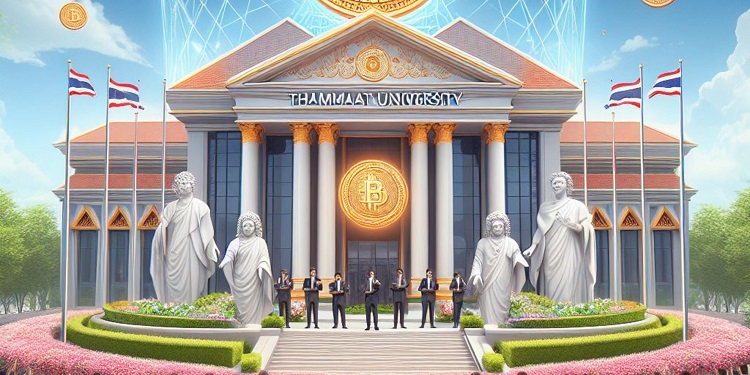In a remarkable shift, blockchain technology is being harnessed to bolster direct democracy, marking a significant trend in contemporary governance practices. Numerous countries are embracing blockchain to support electoral processes, showcasing its potential to revolutionize traditional voting systems.
Innovative Solutions from Thammasat University
Thammasat University, through its Office of Business Incubation Center and Intellectual Property, has spearheaded the development of blockchain-based election technology. The project, titled “Online Election System Using Blockchain via THAIVOTE.io,” represents a pioneering endeavor aimed at modernizing electoral practices. This initiative has garnered considerable attention and is recognized as a compelling social innovation.
Evolution and Implementation
The inception of the “Online Election System Using Blockchain via THAIVOTE.io” dates back to 2017, initiated with funding from the Department of Physical Education. Subsequently, the system underwent iterative enhancements and was officially piloted during the 2019 election of the Surat Thani Public Health Saving and Credit Cooperative Committee.
Thammasat University established a memorandum of understanding with the Surat Thani Public Health Saving and Credit Cooperative Limited to conduct elections using the blockchain-based online voting system. This partnership signifies a commitment to innovation and efficiency in electoral processes.
Advantages of Blockchain Technology
Prof. Dr. Anat Limakdet, Director of the Center of Intellectual Property and Business Incubation, highlights the transformative impact of blockchain technology on electoral procedures. Unlike conventional electronic election systems, which are often centralized and susceptible to security breaches, the THAIVOTE.io election system operates on a decentralized blockchain network. This ensures the integrity and transparency of the voting process while safeguarding voter confidentiality and preventing external interference.
The blockchain-based approach enhances security by encrypting and storing data on a distributed ledger, eliminating the need for intermediaries and reducing the risk of manipulation. Prof. Dr. Anant emphasizes that blockchain-based elections mitigate hacking incidents, streamline vote counting processes, and ultimately enhance convenience and cost-effectiveness for both election organizers and voters.
Expansion and Recognition
The success of the blockchain-based election system has paved the way for its expansion to various other electoral contexts. Thammasat University has facilitated online elections for diverse savings cooperative groups, including the Ministry of Justice Saving and Credit Cooperative Limited and the Communications Authority of Thailand Saving and Credit Cooperative. The scalability and versatility of the THAIVOTE.io platform underscore its potential to transform electoral practices beyond its initial scope.
The innovative approach to elections has earned accolades, with the “Online Election System on Blockchain via THAIVOTE.io” project receiving an honorable mention at the Democratic Innovation Contest 2023 hosted by the Secretariat of the House of Representatives. This recognition underscores Thailand’s commitment to fostering democratic innovation and leveraging technology to enhance electoral integrity and accessibility.
In conclusion, Thailand’s pioneering use of blockchain technology in elections exemplifies a paradigm shift in democratic governance. By embracing innovative solutions, such as the THAIVOTE.io platform, Thailand is at the forefront of leveraging blockchain to uphold democratic principles, promote transparency, and empower citizens in the electoral process.

